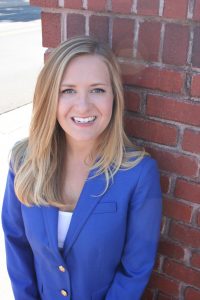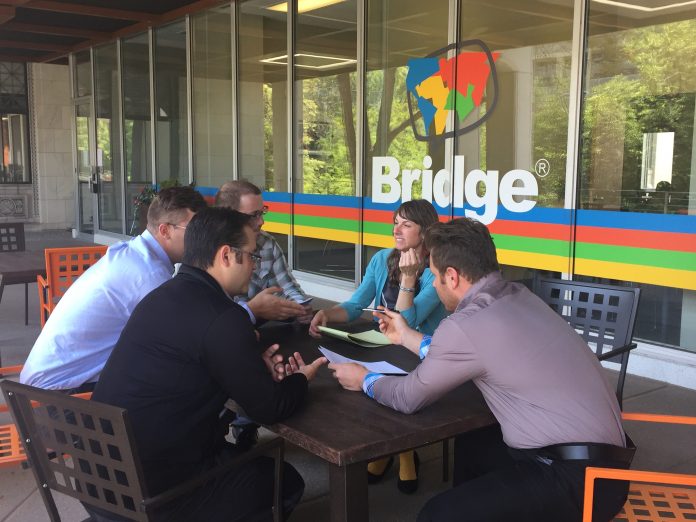Anna Hearrell, Bridge’s product manager, explains to Melanie Butler how this international teacher training organisation empowers educators
Governments seem increasingly keen on EFL teachers with certificates as well as a first degree. What are the essential elements of a certificate course? Understandably, governments and language institutes want to hire well-prepared teachers. There are four essential elements of internationally recognised TEFL/TESOL certification.
1) Hours of certification: 120 is the standard number of training hours required by most schools worldwide.
2) Methodology and application. Yes, schools want teachers who have an understanding of ESL/EFL teaching methodology, but more importantly, they should be able to apply that knowledge. So, an essential aspect of training is practising newly learned skills, like lesson planning.
3) Interaction and reflection. Training shouldn’t happen in a vacuum. Another important element of quality certification is support for teachers’ development. In addition to exercises, quizzes and video teaching demos, trainees on our courses value the feedback they get on assignments from their personal tutor, and the interaction with peers of different experience levels and backgrounds in discussion forums.
4) And, of course, accreditation.
Government-backed accreditation doesn’t exist for teacher training courses in the UK. To have legal status, training certificates must either be issued by a university or listed on the register of recognised qualifications by the national regulator. Can you explain the US system?
In America, the US Department of Education does not accredit institutions but instead provides oversight to an accreditation system comprising approximately 60 different agencies. At Bridge, for example, we are an accredited post-secondary institution, which means that our programmes and institution have been vetted by an accrediting agency (ACCET – the Accrediting Council for Continuing Education and Training) that is recognised by the US Department of Education.
This status is not easily earned and must be renewed every five years through a rigorous process that includes campus visits by ACCET assessors to check that our online and onsite programmes meet strict quality standards.
Many of our courses have also received university credit recommendations by the American Council on Education’s Credit Recommendation Program, whose members comprise approximately 1,700 accredited, degree- granting colleges and universities.
What your readers may not know is that a shortcut to verifying the quality of an American TEFL/TESOL organisation is checking their web address. The suffix .edu (as in bridge.edu) is exclusively granted to post-secondary institutions and organisations that are accredited by an agency on the US Department of Education’s list.
Outside the US, we have recently been accredited by UK-based Aqueduto, whose membership includes International House World, NILE and the British Council.
“The best teachers are lifelong learners”
Certificates can be one size fits all. You train to teach adults and end up teaching four-year-olds. What is the Bridge solution?
We want to empower teachers at all stages of their careers, so a one-size-fits- all approach won’t work. Instead, we offer modular, customisable training that lets teachers create a roadmap to their own success.
For example, our most popular course, the 120-hour Master TEFL/TESOL Certificate, is great for new teachers because it starts with a foundation in methodology, then expands on that with training in working with two commonly taught groups: young learners and business professionals.
Other teachers are ready to move beyond the foundations and learn in-demand skills. Our Specialized Certification in Teaching English Online, which covers the tools, technology and teaching methods unique to the virtual classroom, is a great example. And we offer other specialisations: teaching English to teenagers, teaching English as a freelancer and many more.
What about teachers who want to stay in the profession, but don’t have time for a masters?
The best teachers are lifelong learners, so we focus on making professional development accessible for all. In addition to our Specialized Certificates, teachers can take micro-credential courses, which are short, affordable trainings (they can be started for free!) to keep their skills sharp. Topics include teaching English using video, English as a global language and teaching the International English Language Testing System (IELTS) exam prep.
For teachers with their sights set on graduate studies, our university-affiliated International Diploma in English Language Teaching (IDELTOnline) is another option. It’s unique in that it can be taken not only for college credit accepted by over 1,700 universities (like many of our courses), but also as a direct pathway to a graduate certificate or master’s degree programme with our university partners. Well over half the students who enrol in the IDELTOnline plan to take it for university credit.
Among the advantages students cite is that this course is far less expensive and time-consuming than a master’s degree. It’s 100% online and the university credit can be deferred, so they can opt to come back months or years later to apply it toward their graduate programme.

Anna Hearrell is product manager at Bridge.





